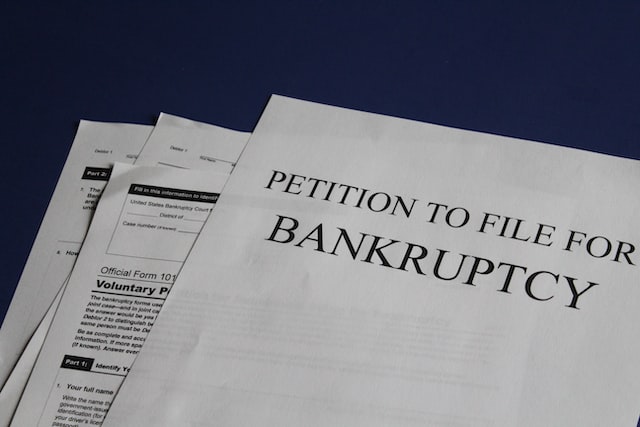When you applied for your new job, you probably were told that one of the benefits of working with the company is that you can contribute money to a 401(k) retirement plan. You had no idea what it was and why you should do it, but all of your family and friends told you that it was a big deal, so you blindly signed up. So what is the big deal about having a 401(k) retirement plan? In this blog, I will attempt to help you with how to understand your 401(k) plan in under 10 minutes.
Disclaimer: I am not a retirement expert nor licensed to give individual retirement advice. With that being said, this information is for educational purposes only. Do your own research and speak to a 401(k) retirement planning professional.
Before I answer your burning 401(k) questions, let’s define a 401(k) plan.
What is a 401 (K) plan?

A 401 (K) plan is a type of retirement savings account you and most employers will contribute money into, so you’ll have money to live on after retirement.
#1) When should I contribute money to my 401 (k) account?

It depends on your employer; some may allow you to sign up right away, while others may have you wait a few months or years before you can contribute.
Depending on the conditions, sign up ASAP when you are allowed to.
#2) How much can I contribute?

Many retirement experts believe you should contribute about 10% of your annual earnings, but it can vary depending on your circumstances.
The maximum contribution limit in 2022, if you are under 50, is $20,500. If you are over 50, you may contribute an additional $6500 to your account, bringing your maximum contribution to $27,000.
#3) How do I get my employer to match my contribution?

This will vary by employer, so this is a question that you’ll need to ask once you are hired.
Most employers pay 50 cents for every dollar, contributed by you up to 6 percent of your pay.
It’s free money, so it’s best to know this in advance and always contribute equal to or greater than your employer’s match if they offer anything.
#4) What if my employer won’t match my contribution?

Consider rolling your money over into a Traditional IRA account or Open a Roth IRA account to contribute and invest your money in low-cost index funds, ETFs, or a Target Retirement Fund.
#5) How much will I pay in taxes?

The good news is that your money is pre-taxed, which means you won’t pay any taxes until you withdraw it from your account.
The bad news is that you have to pay taxes when you’re ready to use the money in retirement, which could mean paying higher taxes, therefore eating up a good majority of your income when you’ll need it the most.
When you withdraw your funds early, before age 59 1/2, you will pay a 10% penalty plus ordinary taxes for whatever your marginal tax rate is (10-37%). When you withdraw your funds in retirement, after age 59 1/2, but before age 72, you will pay ordinary taxes for whatever your marginal tax rate is (10-37%).
#6) How do I avoid the early withdrawal penalty?

There may be a time before retirement when you may need access to the funds in your 401(k) account. Before making plans, contact your HR department to ensure your employer allows early withdrawals.
If it is allowed, you will still owe ordinary income tax on the money withdrawn; however, the following are exempt from the early withdrawal penalty of 10%:
- To cover college tuition.
- To use as a downpayment on your first home.
- If you have an immediate and heavy financial need that has no other sources of income to pull from (Check out the IRS website for more information).
#7) When am I considered vested in the company to take my match and contributions if I change employers?

Again this is a question that you’ll need to ask once you’re hired because it varies, but most employers require you to be vested with the company for at least five years; otherwise, you can take the money that you contributed into your account, but you will forfeit any funds that your employer matched into your contributions.
Instead of cashing out the funds, consider:
- Rolling your money into an IRA
- Rolling the money into a new 401(k) plan
- Leave the money in your existing plan
#8) How much does having a 401 (k) plan cost to maintain?

The Labor Department requires disclosure of fees associated with your fund. Your plan’s prospectus is usually found on the company’s website. If you cannot find it, contact HR. If they don’t have it, request a fee audit to determine how much money is going into your account vs. someone else’s pocket.
Things to look for once you’ve retrieved the document:
- Look at the expense ratio; this will show you what percentage of your funds are deducted from your account to cover the cost of operating your fund. You will want this number to be far below 1 percent. If it’s higher than one percent, you are probably invested in a hyperactively managed fund, which means you will lose money over time due to fees.
#9) When can I withdraw my money for retirement?

Whether your plan is to retire at 65 or work until the day you die, you must withdraw your money by 72; otherwise, you can get penalized 50% of your account balance for allowing your money to remain in your account, so make sure you mark your calendar.
#10) What happens if all of my money is lost in a market crash?

Unfortunately, you’ll have to start over. Section 404 of the Employment Retirement Income Security Act requires your employer to disclose certain information about your plan, such as:
- a summary of your plan
- how long you’ll have to work before you can contribute to your account
- and the fiduciary that has control over your plan.
In return, you assume all liability for your investment results; however, if it can be proven that your fiduciary broke any rules, you can sue them to reclaim loss damages.
#11) Is my 401(k) plan safe from bankruptcy?

Federal law says that your 401 (k) plan cannot be touched from personal bankruptcy; however, the IRS may withdraw money if you owe taxes.
The court may also order monies to be withdrawn as part of a divorce settlement.
If you roll over funds while in bankruptcy to a non-exempt account, your money is no longer protected.
That wasn’t so bad, was it?
You just learned the basics of your 401(k) plan in less than 10 minutes.
Hopefully, I could provide clarity to questions you have had unanswered for quite some time.
If you found this newsletter valuable, please consider subscribing and sharing this article on your social media page to spread awareness.
The only one that will ever care about your future is you, so stay on top of your money.
Good luck on your road to retirement.
Other Ways I Can Help You:
- Subscribe to my podcast at Build Young Grow Wealthy on your favorite platform
- Join my e-mail community for exclusive tips, news, and more!
- Connect with me on LinkedIn at Willita Cherie and by subscribing to this newsletter.
- Visit my website www.willitacherie.com
- Purchase my book How to Budget: On ANY Income
Sources
“IRS Announces Changes to Retirement Plans for 2022.” Internal Revenue Service, https://www.irs.gov/newsroom/irs-announces-changes-to-retirement-plans-for-2022.
Parker, Tim. “How Is Your 401(k) Taxed When You Retire?” Investopedia, Investopedia, 13 July 2022, https://www.investopedia.com/articles/personal-finance/061915/how-your-401k-taxed-when-you-retire.asp.
“Retirement Topics – Hardship Distributions.” Internal Revenue Service, https://www.irs.gov/retirement-plans/plan-participant-employee/retirement-topics-hardship-distributions.
Segal, Troy. “How to Withdraw Money from Your 401(k) Early.” Investopedia, Investopedia, 17 Aug. 2022, https://www.investopedia.com/ask/answers/101314/how-do-you-withdraw-money-your-401k.asp#toc-can-you-withdraw-money-from-a-401k-early.
Law Offices of Robert M. Geller, P.A. “Does Filing for Bankruptcy Mean I Lose My 401K? Here’s What You Need to Know.” Law Offices of Robert M. Geller, P.A., 11 Aug. 2021, https://www.attorneyfortampabay.com/blog/401k-and-bankruptcy/.
